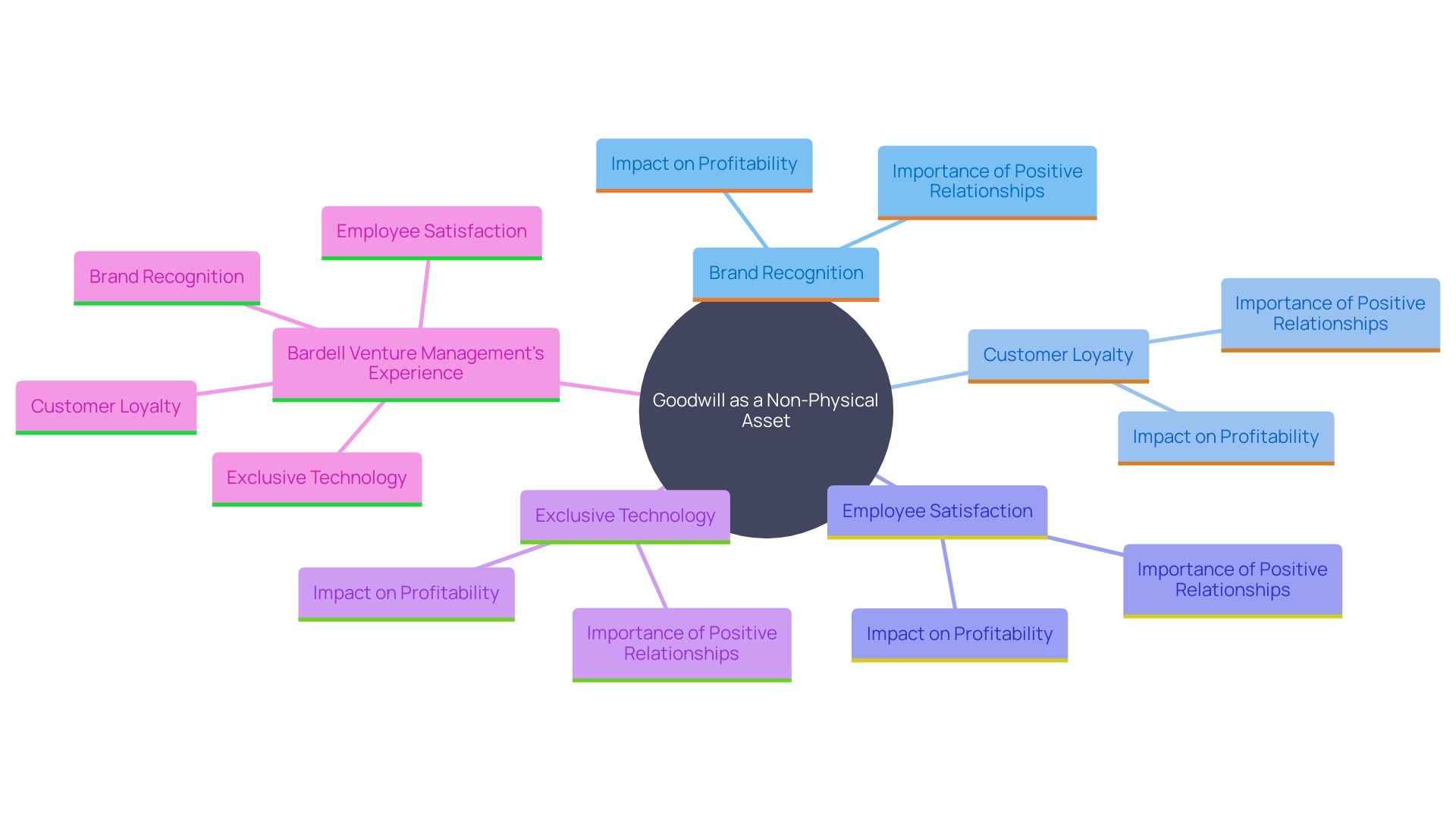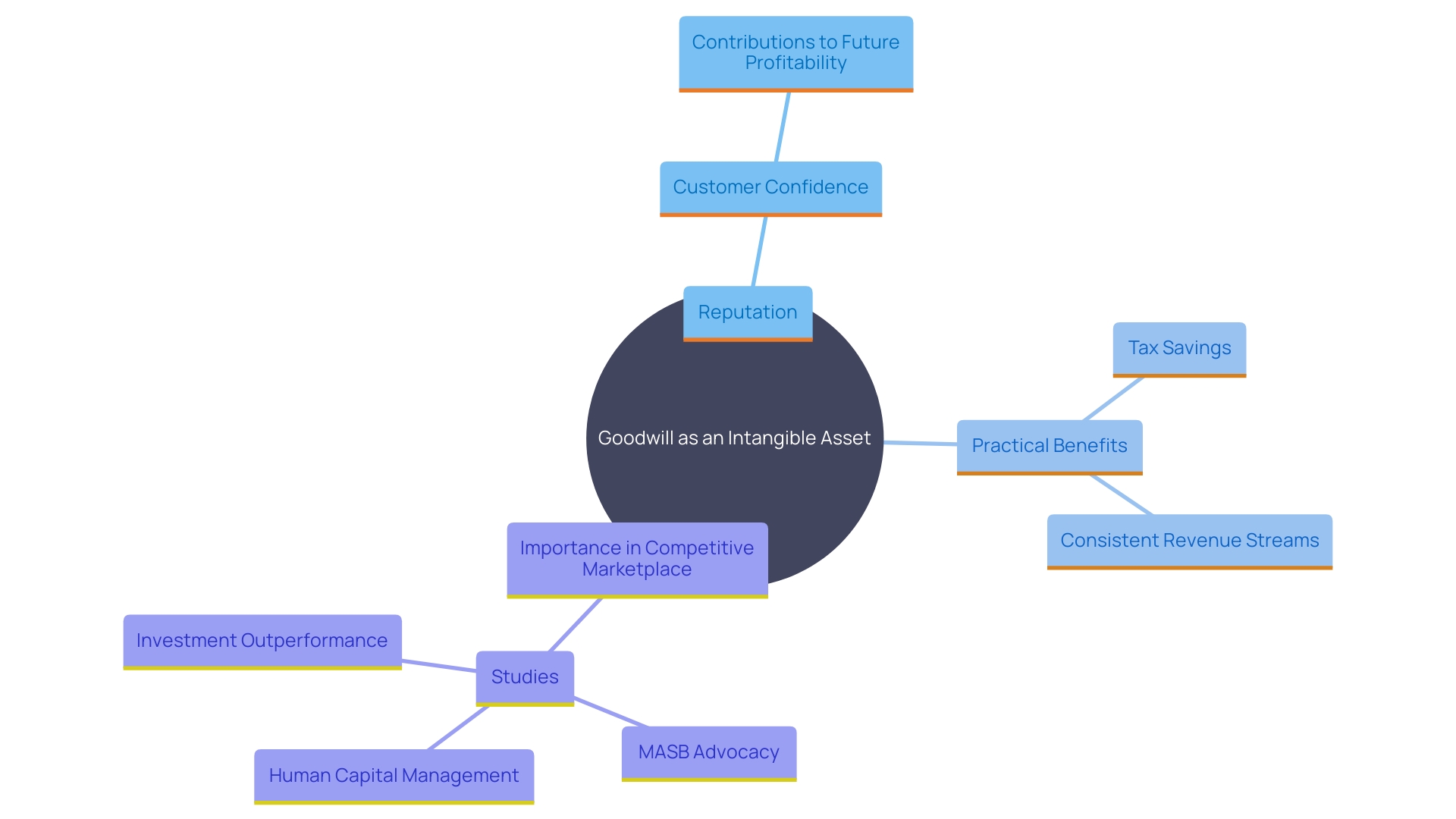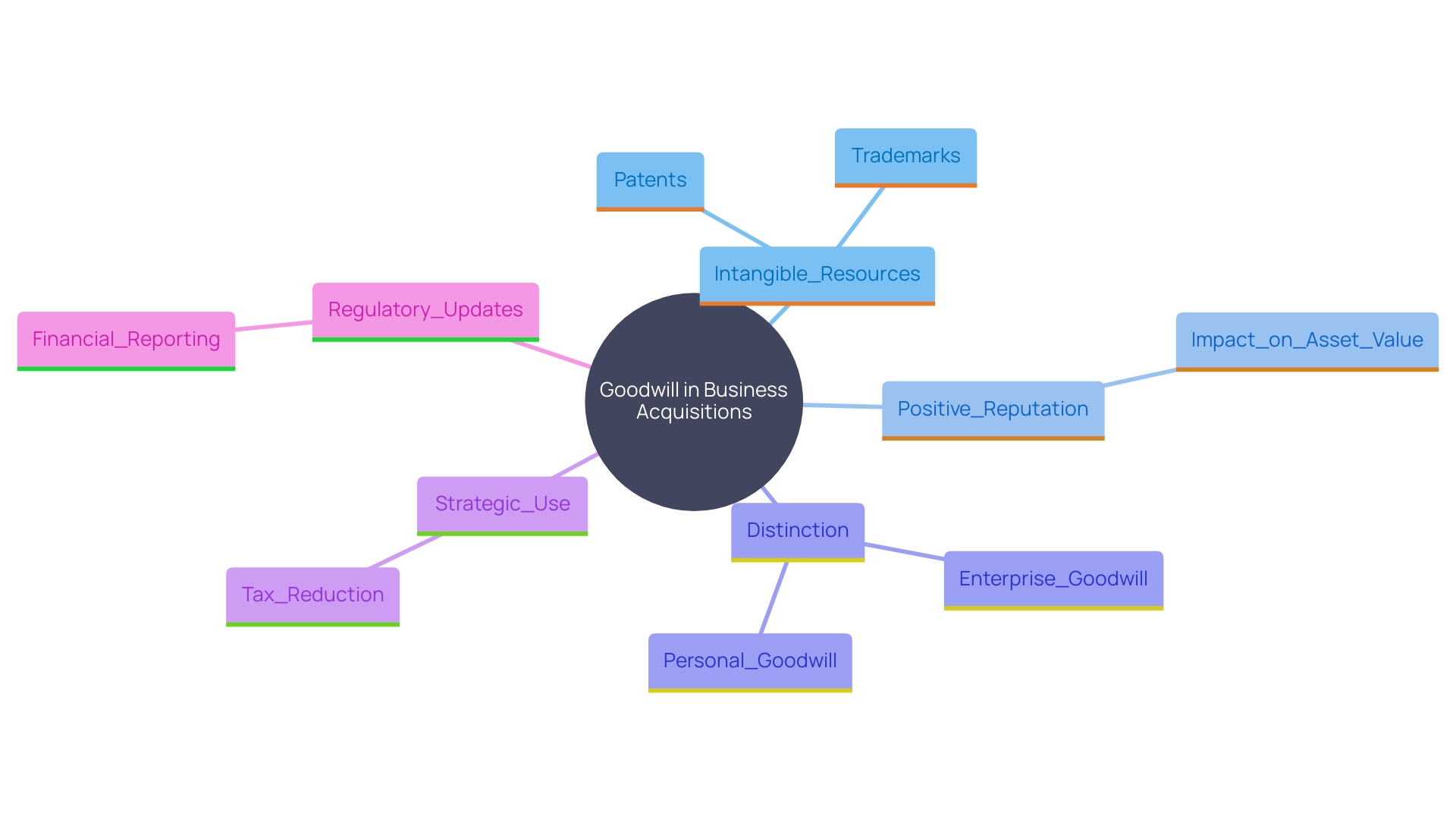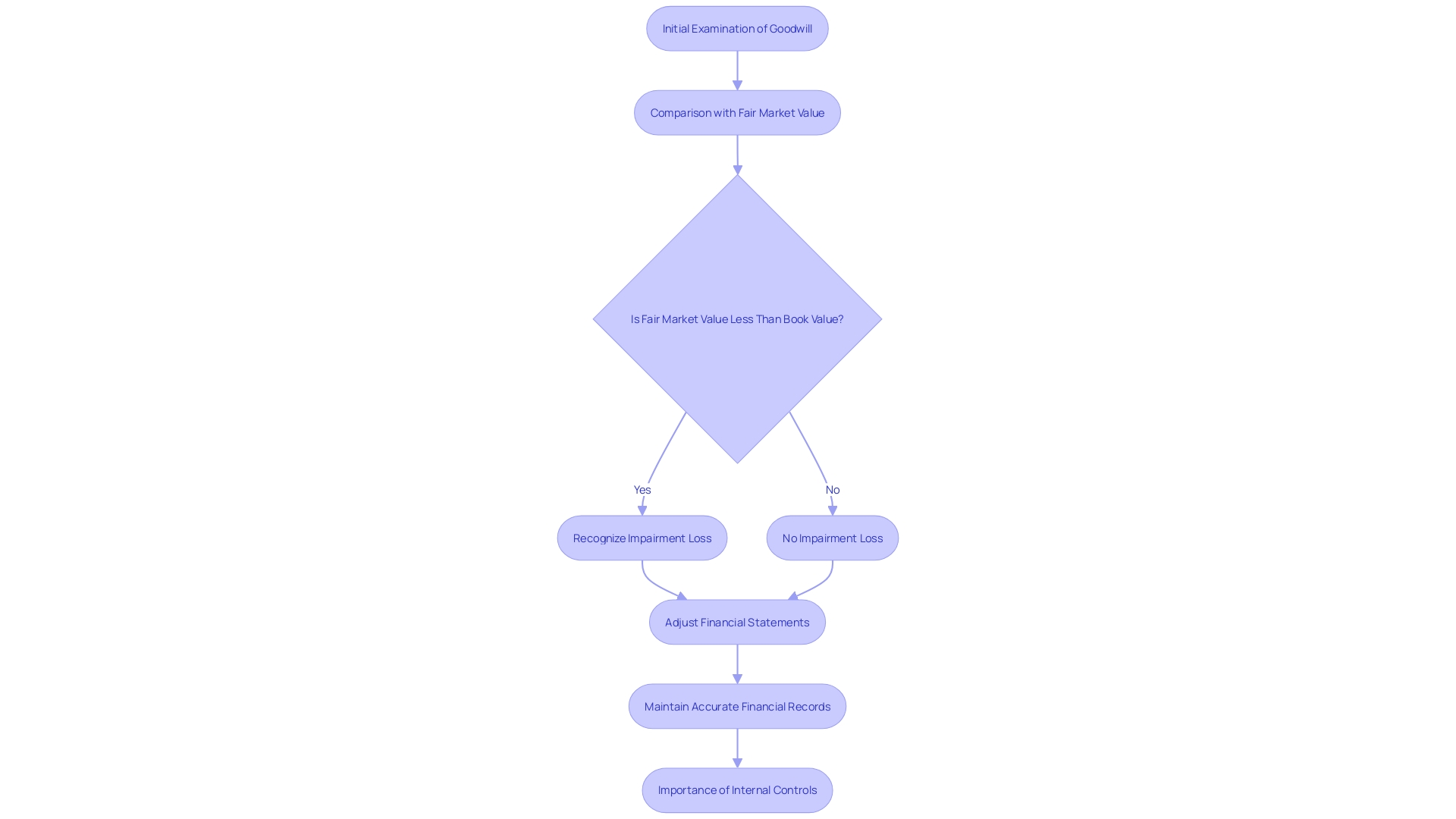Introduction
In the world of accounting and finance goodwill stands out as an intangible asset that surpasses the tangible and monetary assets of a company. This asset represents the value of a business encompassing factors, like brand awareness, customer trust, employee happiness and unique technology. Together these elements improve a companys profitability. Support its future development.
Recognizing the importance of goodwill is essential for investors since it offers information about a companys actual value and competitive edge. This article delves into the complexities of goodwill by examining its function as an asset and its positioning within the balance sheet. Additionally it discusses the aspect of impairment testing highlighting how these factors play a key role, in ensuring precise financial reporting and enabling investors to make informed decisions.
What is Goodwill in Accounting?
In the realm of accounting and finance, goodwill is prominent as a non-physical resource that signifies the inherent worth of an organization beyond its physical properties and liabilities. This valuable asset becomes relevant when one business acquires another for more than the market value of its identifiable assets. Goodwill is comprised of components such, as brand recognition, customer loyalty, employee satisfaction and exclusive technology which collectively contribute to boosting a companys ability to generate profits.
One tangible instance showcasing the significance of positive relationships is evident through Bardell Venture Management's journey as the Realty ONE Group franchise holder on the Eastern seaboard in 2014. Bardell has effectively utilized expertise from Sage Intacct to enhance profitability and expand their enterprise over time – underscoring how elements of positive reputation such as brand esteem and client connections play pivotal roles in fostering achievement.
Investors believe that having comparable accounting practices for intangible asset transactions is crucial for making informed investment decisions easier to understand and analyze accurately as outlined in our recent article, by Footnotes Analysts.
'Expert opinions also emphasize the importance of making decisions promptly and implementing robust corporate governance practices to protect and enhance the value of intangible resources. Scholars in the field of business law elaborate on the significance of well-considered legal frameworks in preserving and improving the non-physical resources that represent value.
Research also emphasizes the significance of positive relationships in assessing the worth of companies and their dealings in the market economy sector. Both large companies and small businesses benefit from effective management of non-physical resources to promote long-term economic growth and improve efficiency through strategic distribution and use of resources.

Goodwill as an Intangible Asset
Goodwill is classified as a tangible resource recorded in an organization’s financial report. Unlike resources such as machinery or buildings, it is not physically present but represents the value of an organization’s reputation and customer confidence. These elements contribute to future profitability. A recent study by Fiserv highlights the resilience and strong demand for consumer products and services in businesses, underscoring the importance of this intangible value in maintaining a competitive edge. It's crucial to acknowledge the significance of goodwill as it showcases the company's importance and competitive edges in the marketplace. People have seen how thoughtful consideration of goodwill has resulted in tax benefits and consistent revenue streams for entrepreneurs in practical scenarios. A client was able to save over $1 million in taxes and guarantee an income of $180,000 for life through a strategic approach to owning goodwill. Moreover, the enduring importance of resources is highlighted in the Brand Finance Global Intangible Finance Tracker report that shows a recovery in the worth of intangible resources to demonstrate their growing relevance in the global economy.

Where Does Goodwill Go on a Balance Sheet?
Goodwill is recorded in the statement as part of long-term holdings along with intangible resources such as patents and trademarks. It holds importance during business acquisitions as it represents the extra value assigned to the acquired entity. Understanding how positive reputation affects a company's overall asset value is essential for investors. Companies that regularly acquire others and have a wealth of experience tend to surpass their peers in delivering returns to shareholders. This underscores the significance of expertise when assessing acquisitions. Goodwill includes both enterprise and personal goodwill. Can be used strategically to reduce taxes significantly when selling a business. Learning about the updates in regulations by the Financial Accounting Standards Board and Securities and Exchange Commission is crucial, for advantageous financial reporting.

Impairment Testing for Goodwill
Each year or frequently if necessary for indications of decrease in worth, Goodwill undergoes an examination to assess for impairment. This assessment entails contrasting the worth of Goodwill with its fair market worth. Should the fair market worth turn out to be lower than the recorded amount, an impairment loss would be acknowledged, resulting in a decrease in the Goodwill figure stated in the records. This process aims to maintain accuracy in reflecting the company status and worth, through its statements. In an example from 2022; A bank decided to shift its approach towards overseeing a specific set of private corporate bonds which triggered a reclassification and fair value adjustment. Emphasizing the crucial role of precise financial reporting practices. This case underscores the need, for internal controls and thorough audits to uphold the credibility of financial records.

Conclusion
To navigate the realms of accounting and finance effectively requires a grasp of the concept of goodwill. A crucial intangible asset that embodies the essence of a business beyond physical assets alone The reputation of the brand customer loyalty and employee contentment are among the components encapsulated within goodwill These factors not only boost a companys profits but also serve as the foundation for long term growth and a competitive edge, in the market.
Effective management of goodwill can result in advantages such as tax benefits and steady revenue generation in the real world scenario examples show this to be true It plays a crucial role in business acquisitions by offering valuable insights into a companys actual value and impacting investment choices Additionally conducting routine impairment tests is key, to ensuring that financial statements truthfully represent the companys value thus fostering transparency and building investor confidence.
In essence, understanding and handling goodwill efficiently could help businesses flourish and prosper in a market. By focusing on enhancing assets firms may discover fresh avenues for expansion ensuring sustained financial well being and security. Embracing the possibilities of goodwill is not merely a tactic; it serves as a route to attaining lasting success, in the constantly changing realm of business.




